Abstract
An incentive program to motivate seat belt use was implemented at a large munitions plant. Seat belt usage was assessed daily at an entrance/exit gate of the industrial complex when employees arrived for work in the morning and departed in the afternoon. During treatment incentive fliers, which prompted seat belt usage and gave belt wearers opportunities to win prizes, were distributed only in the afternoon. Seat belt wearing increased from baseline means of 20.4% and 17.3% during the morning and afternoon, respectively, to averages of 55.5% during afternoon departures and 31.1% during morning arrivals. During follow-up, mean belt use dropped almost to baseline levels. Categorizing vehicles according to driver sex and license plate number enabled a study of belt wearing practices of individuals, and revealed that the incentive program influenced some drivers to wear their seat belts during morning arrival when incentives were not distributed (i.e., treatment generalization) and during a follow-up period after the incentives were withdrawn (i.e., response maintenance).
Keywords: behavioral community psychology, organizational behavior management, transportation safety, incentives, seat belts, cost-effectiveness
Full text
PDF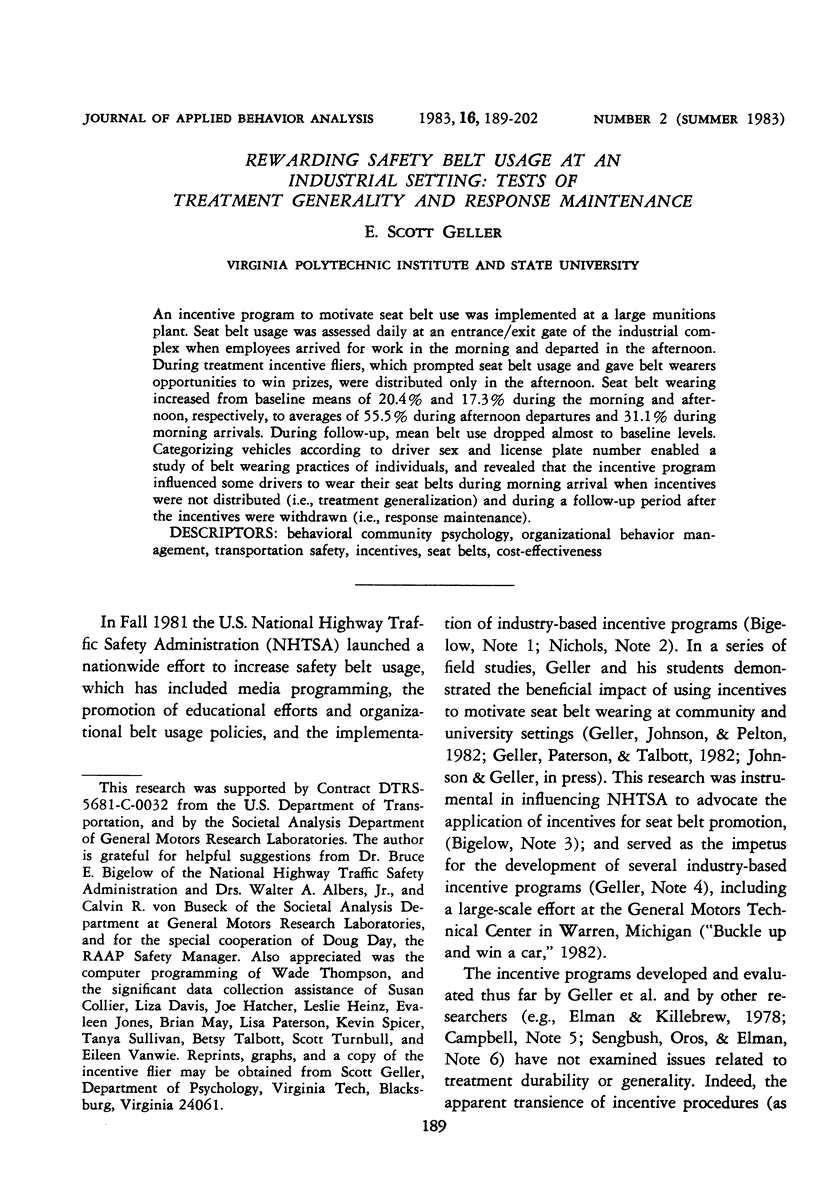
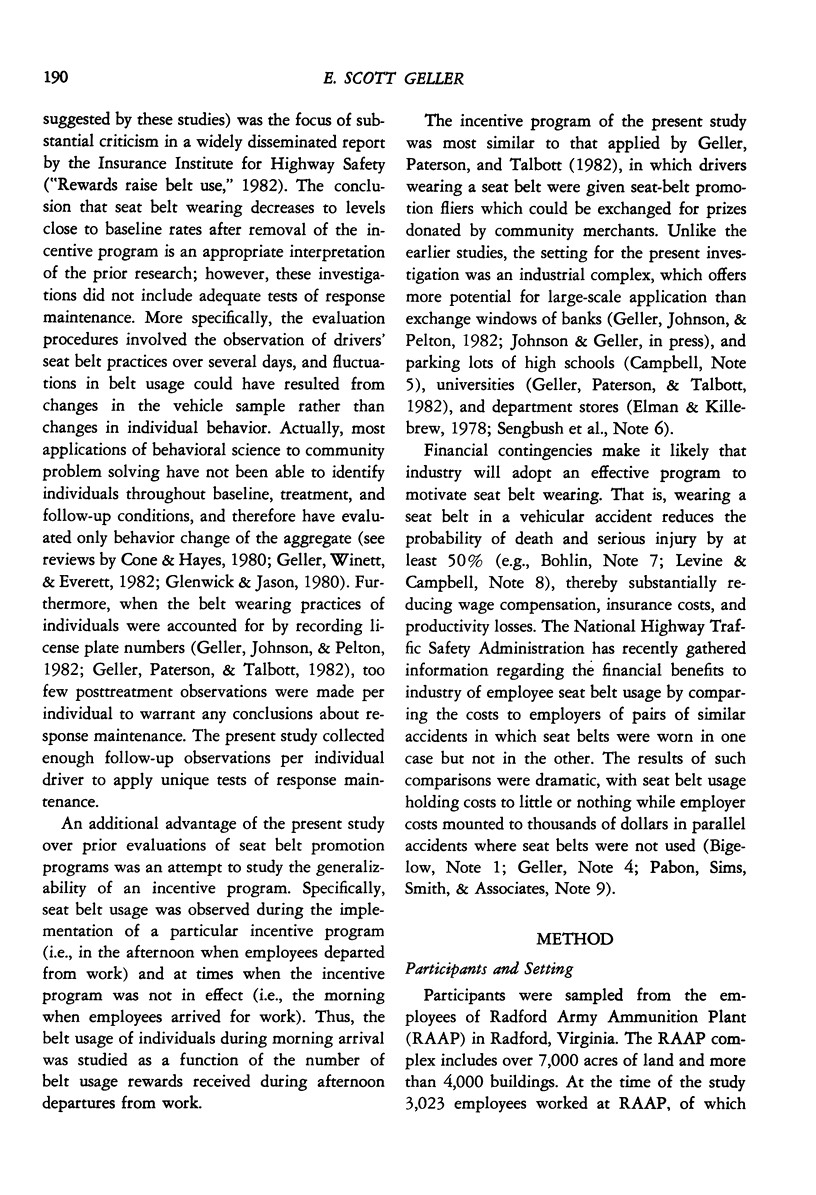
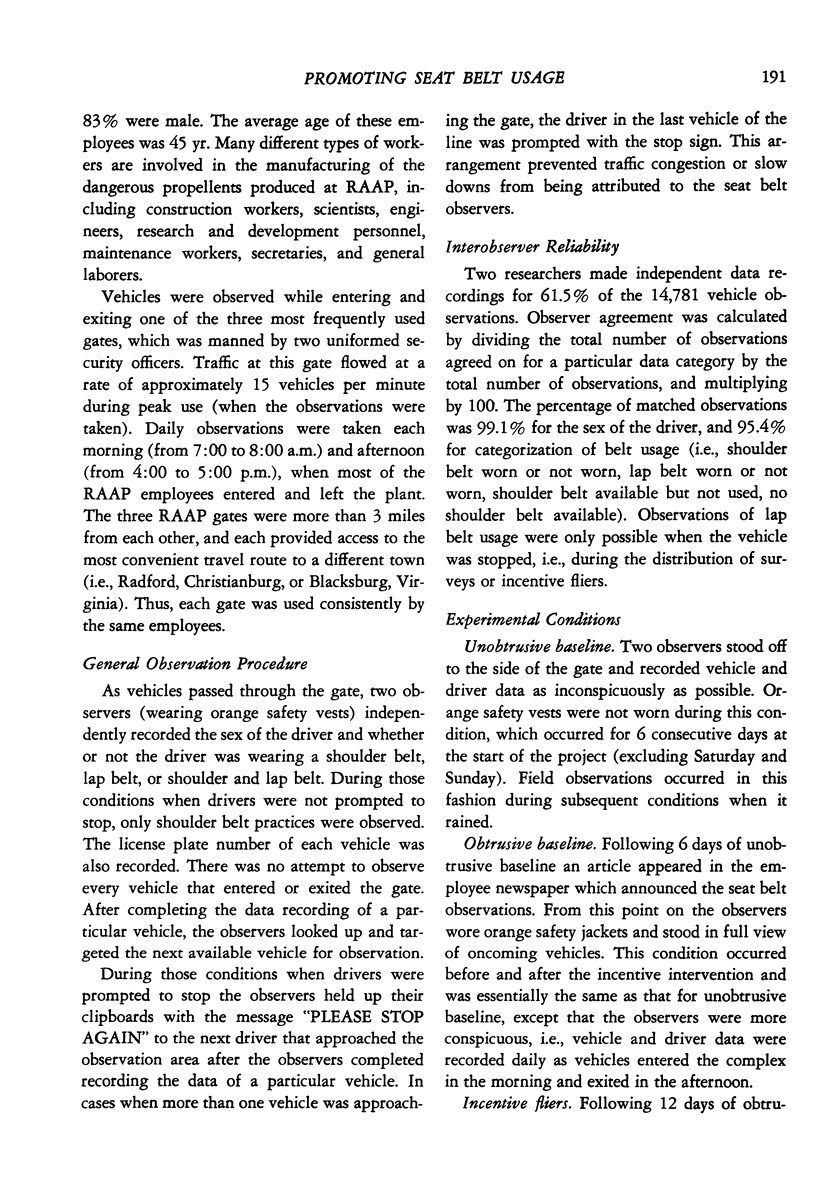
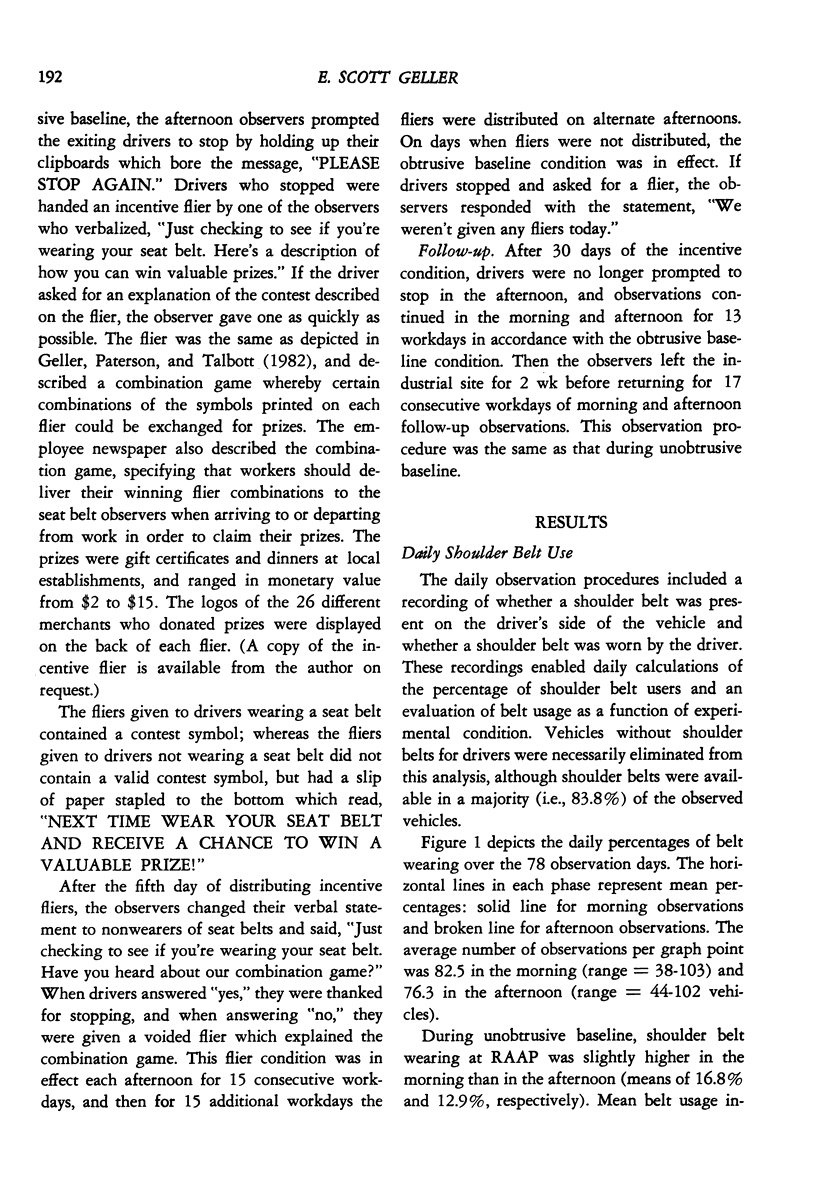
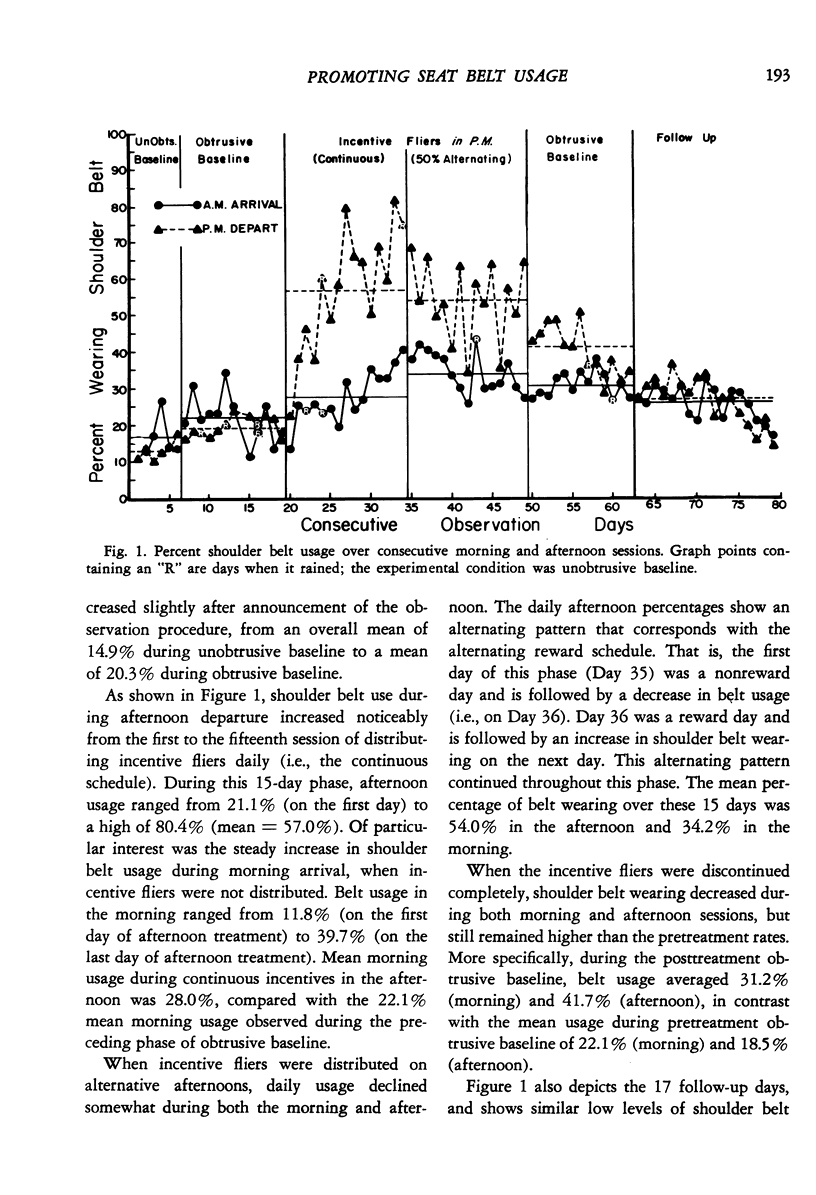
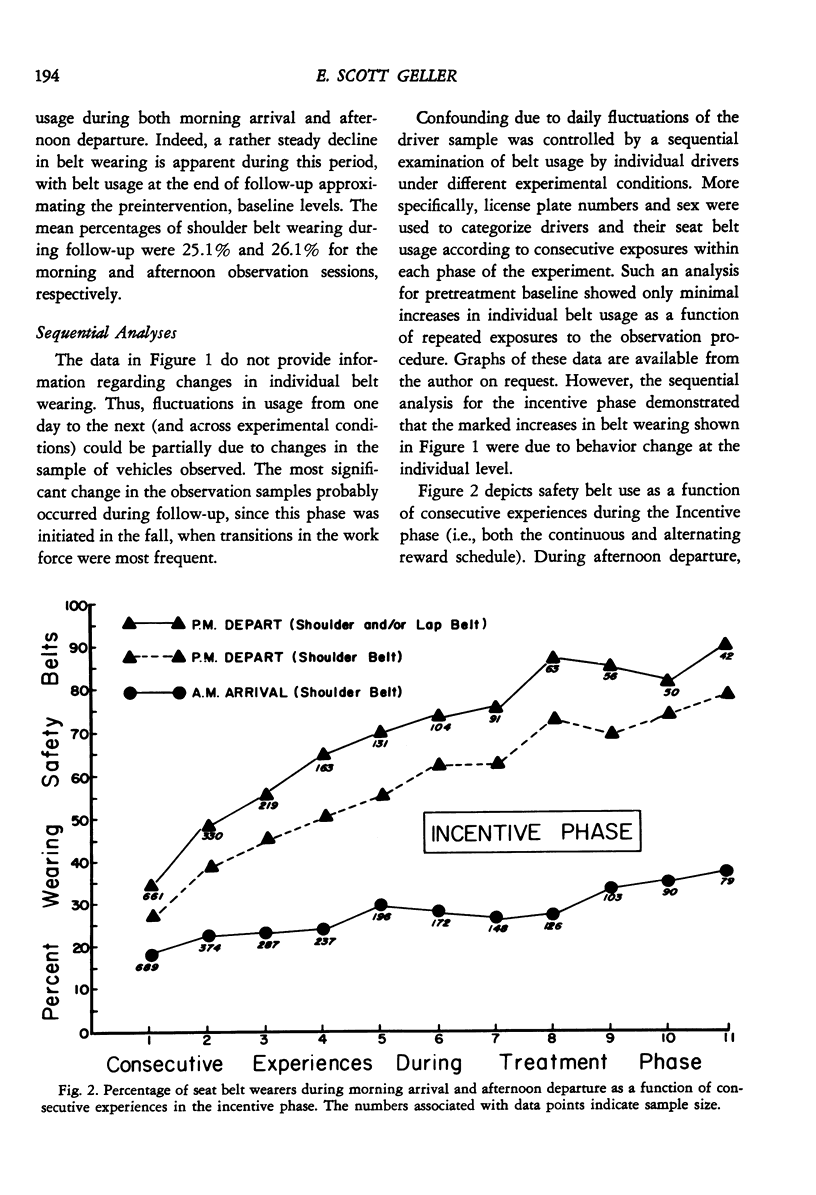
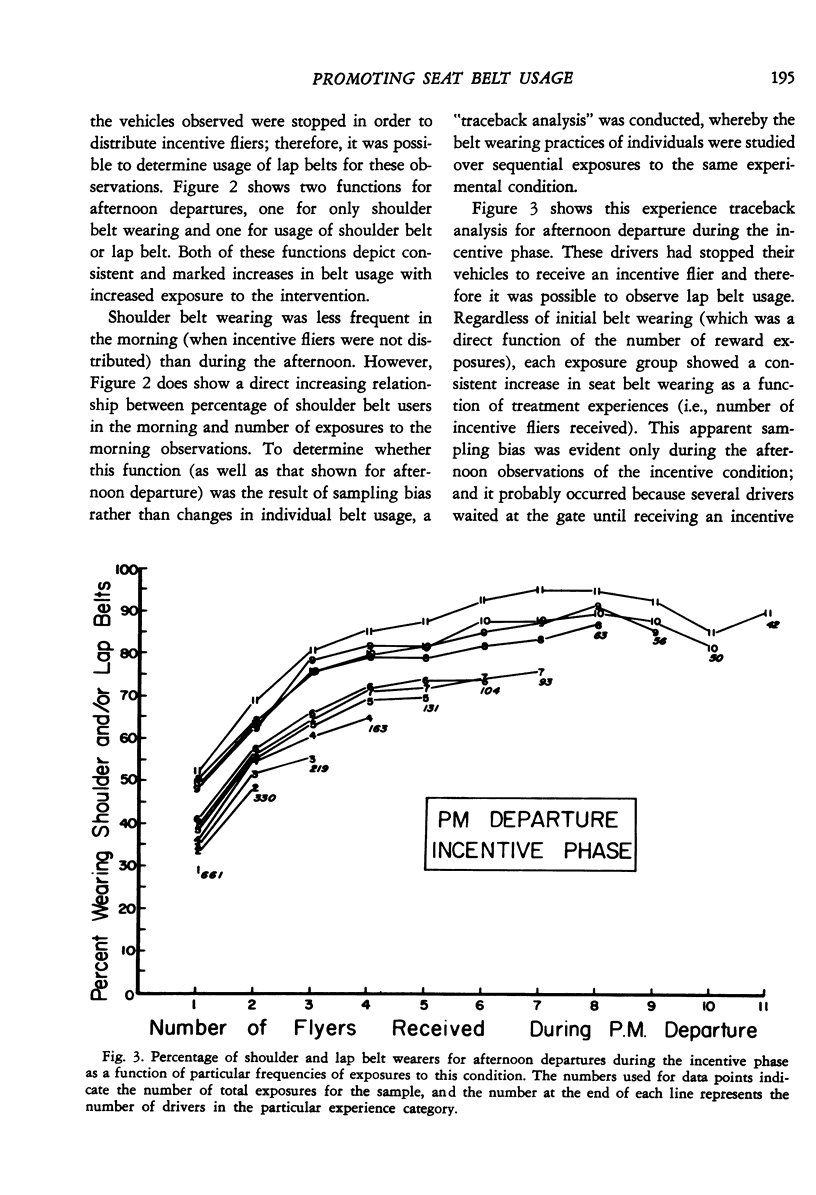
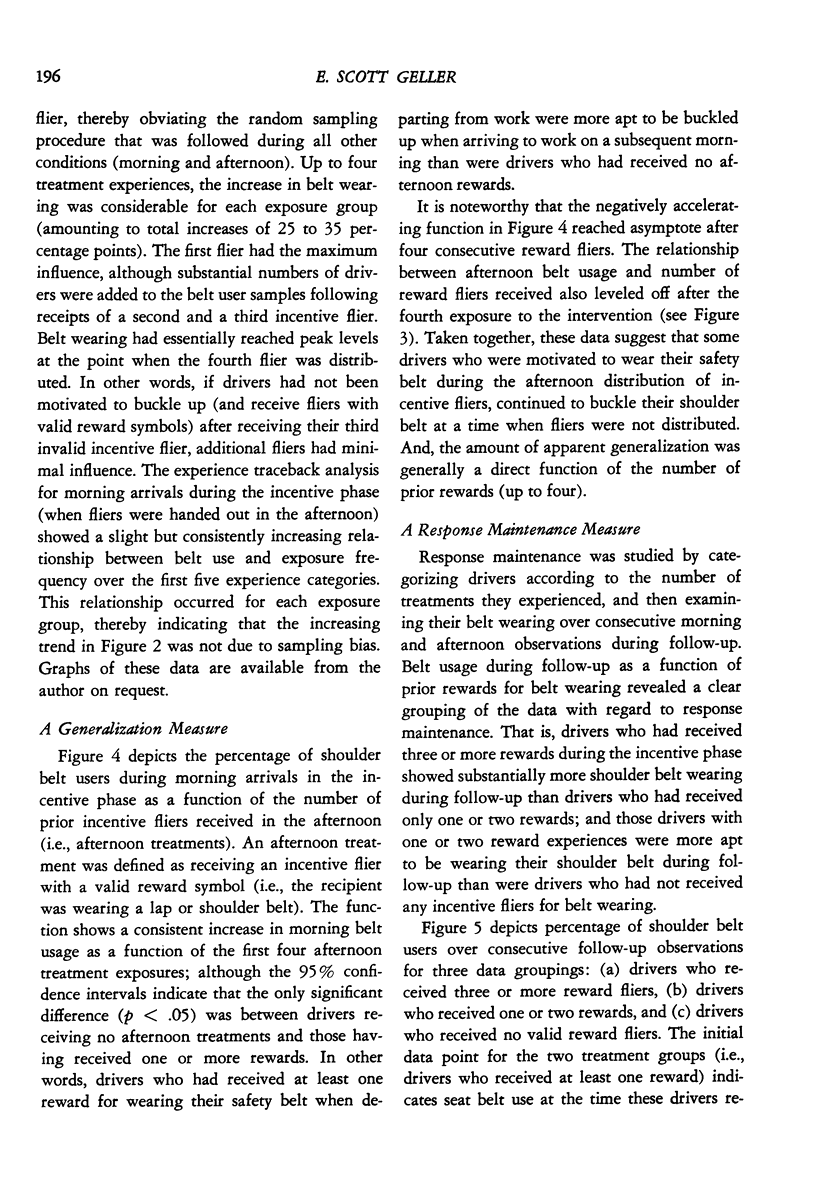
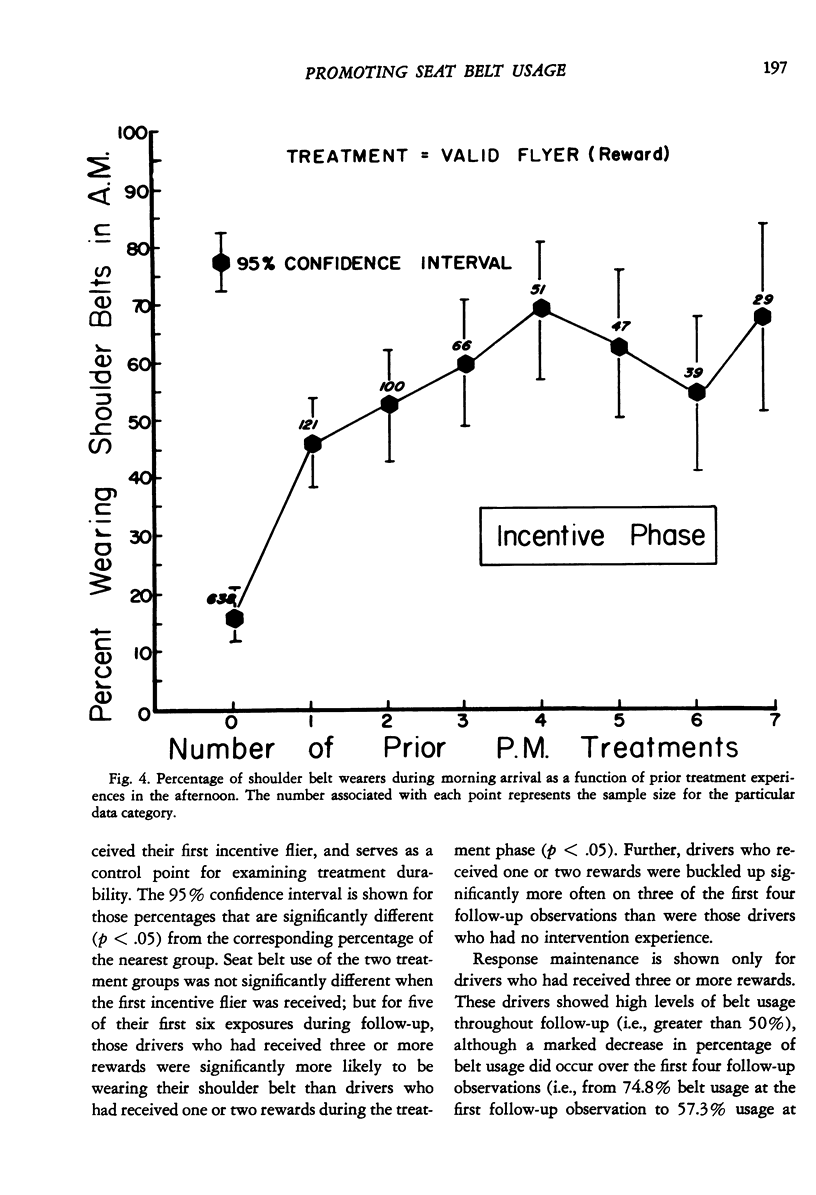
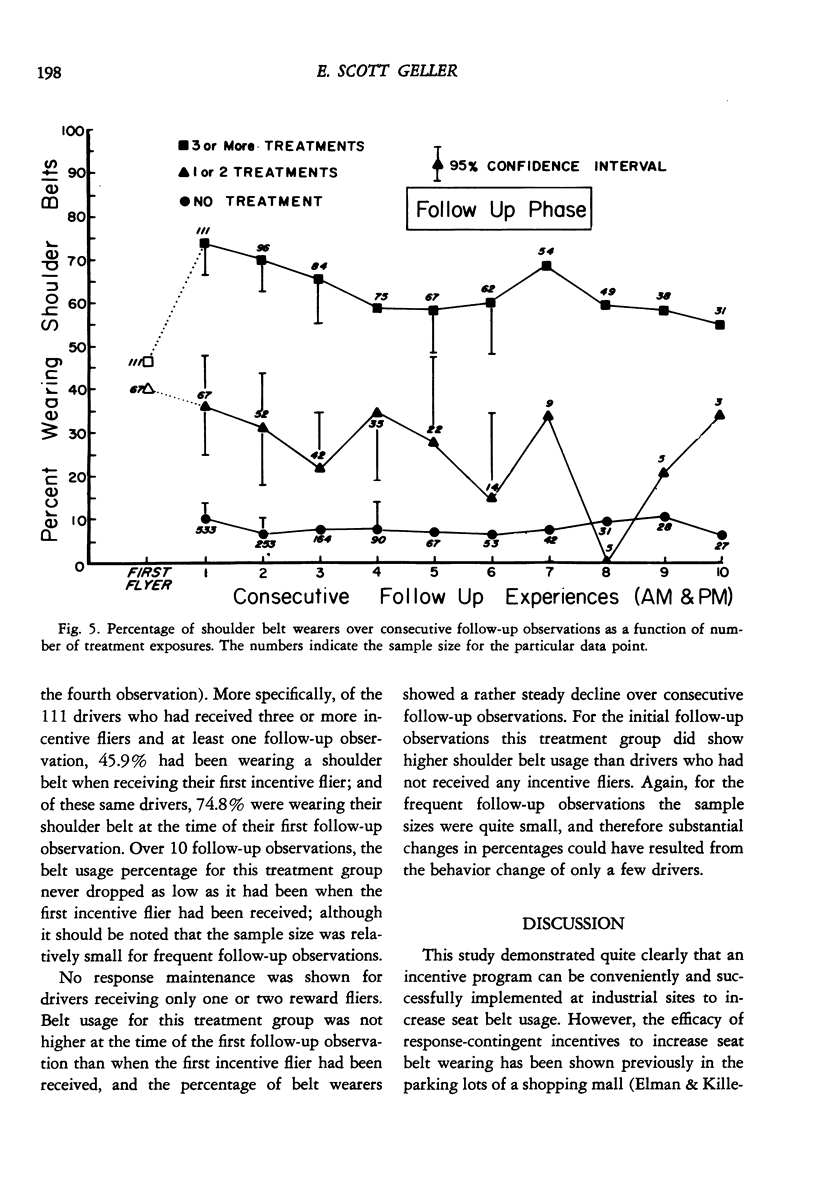
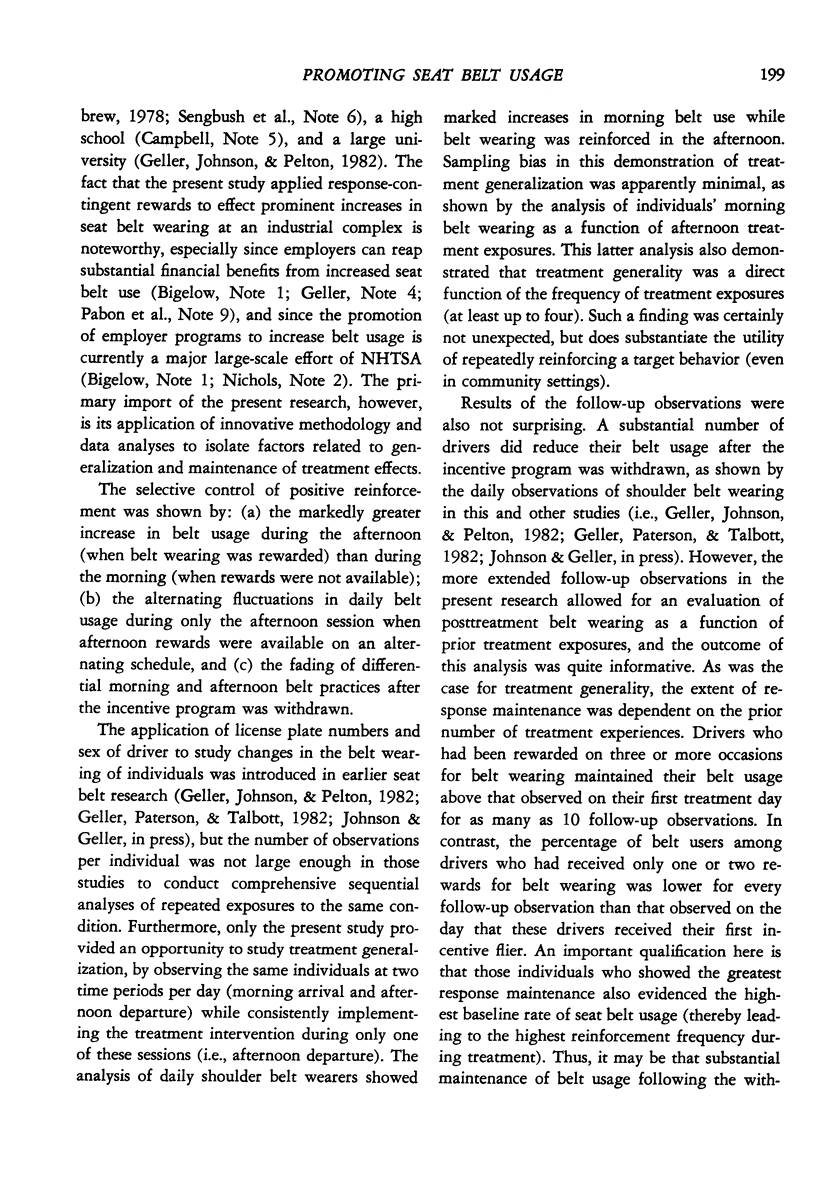
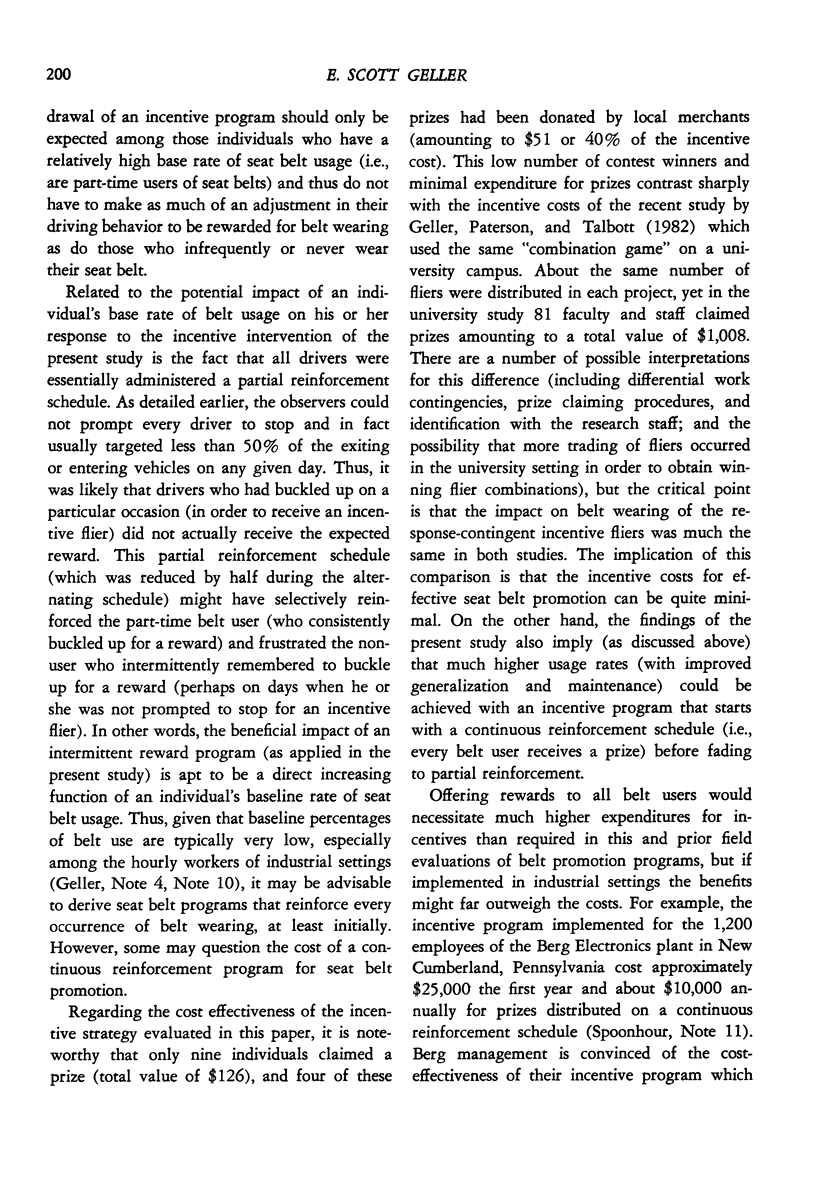
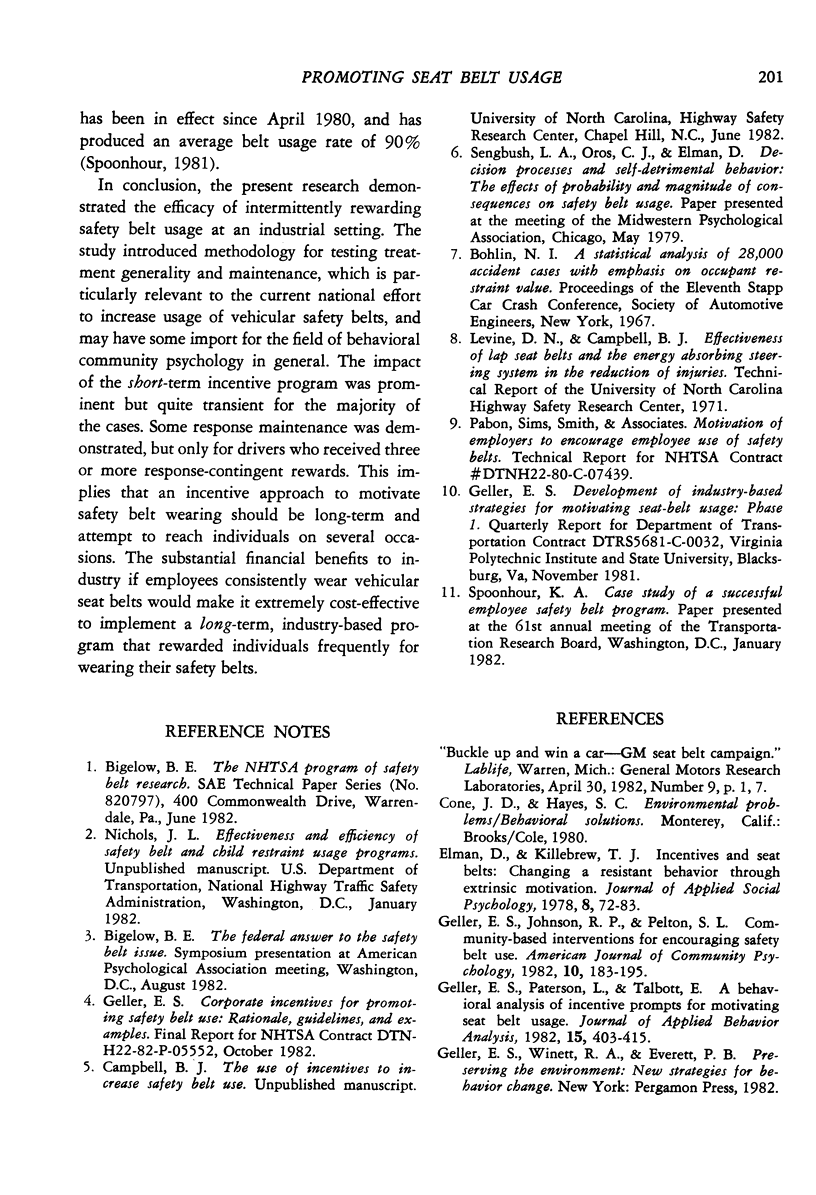
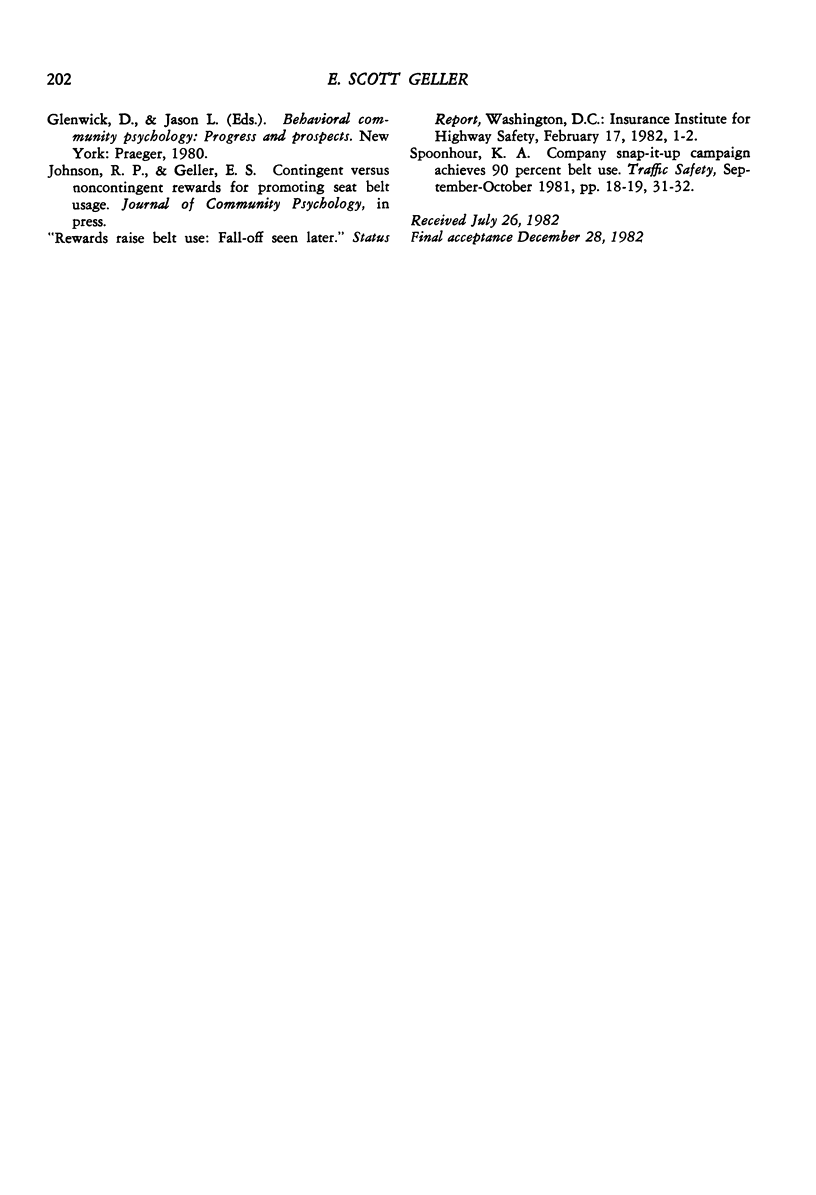
Selected References
These references are in PubMed. This may not be the complete list of references from this article.
- Geller E. S., Paterson L., Talbott E. A behavioral analysis of incentive prompts for motivating seat belt use. J Appl Behav Anal. 1982 Fall;15(3):403–413. doi: 10.1901/jaba.1982.15-403. [DOI] [PMC free article] [PubMed] [Google Scholar]


